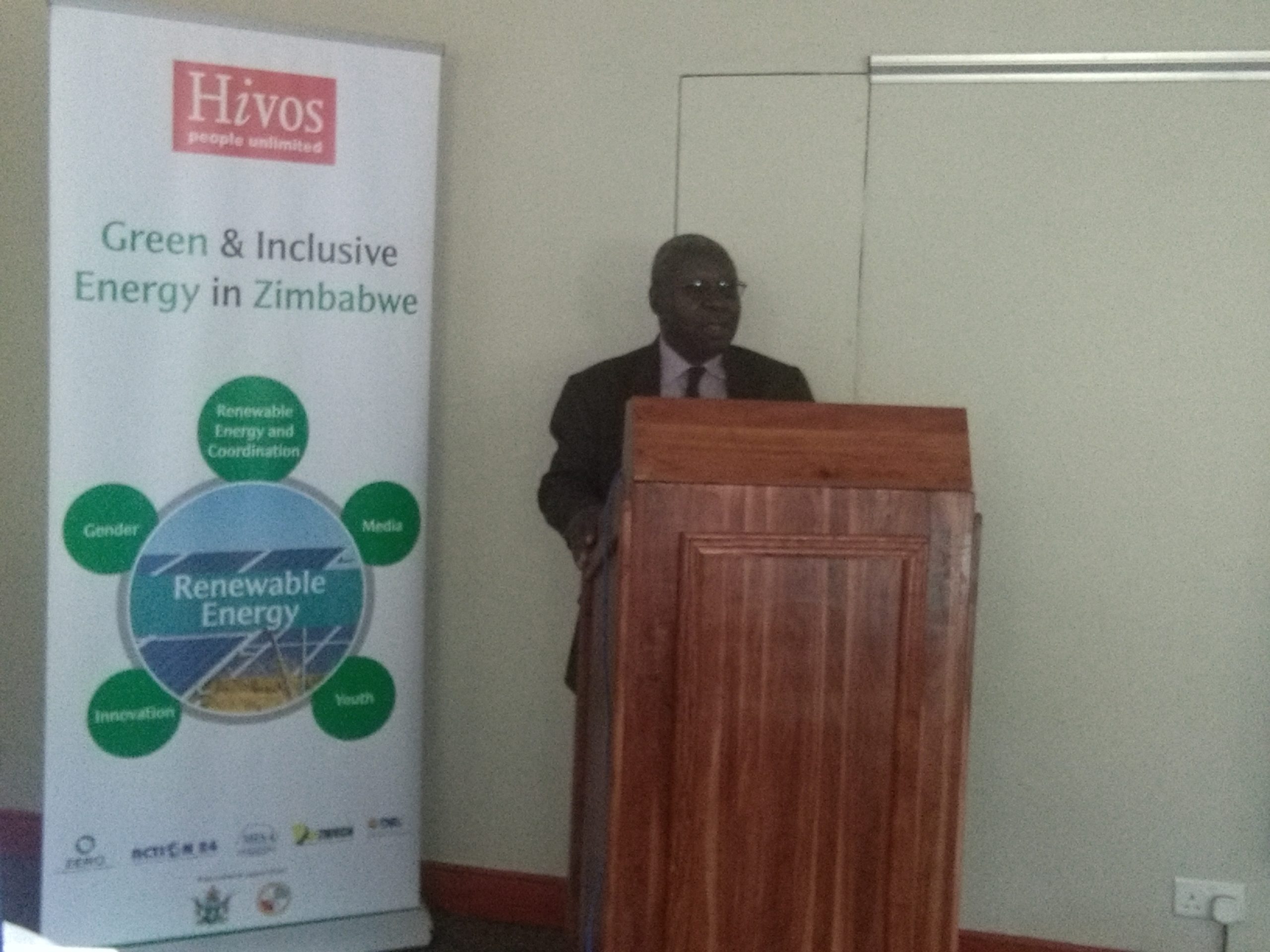By Byron Mutingwende and Patricia Mashiri
Renewable energy is now at the centre of global efforts of moving towards greener economies, sustainable development and poverty eradication, a senior government official has said.
Speaking at the meeting for nexus ministries in Harare on 31 August 2017, Patson Mbiriri, the Permanent Secretary for energy and power development said access to energy is universally recognised as an enabler to economic and social development.
“Zimbabwe is facing energy challenges due to increasing demand coupled with aging power generation equipment and limited investment in the sector. The main energy sources are coal, water, fuel-wood and petroleum products. These are non-renewable and are likely to be exhausted in the near future,” Mbiriri said.
He said the demand for power and fuel is rising hence the need to look for other sustainable energy sources. Together with climate change, these are among the greatest challenges of the present and future generations. Thus, there is a need to increase the share of renewable energy in the overall energy mix and address issues of energy supply and climate change.
A representative from the Ministry of Health and Child Care revealed that the United Nations Development Programme is funding the installation of 156 solar facilities at clinics and hospitals in rural areas as a means of promoting use of renewable energy. Some 10KW solar systems have been commissioned for the Gleview and Budiriro polyclinics. The initial phase is expected to end on 10 September before the rolling out of the second phase of the project.
The Ministry of Higher and Tertiary Education is also rolling out renewable energy projects at institutions of higher learning. The University of Zimbabwe is running a renewable energy project. The Environmental Management Agency is also embarking on a project that converts waste to energy. The Agritex Department is also embarking on projects to prevent the use of trees in curing tobacco.
In 2013 and 2014, the energy ministry distributed solar mobile units and mini-girds to police posts, ministry of primary and secondary education, ministry of higher and tertiary education, tourism, health and environment.
Currently, renewable energy projects in Zimbabwe are focusing on solar, hydro and biomass with potential in wind and geothermal sources. Renewable energy technologies are recognised as alternative energy options as well as key resources for addressing universal energy access, energy security and climate change.
The private sector has been engaging with the government with the view of getting involved in the renewable energy sub-sector. Notable involvement of the private sector has been in the mini hydro power plants in the Eastern Highlands and the biofuels sector.
“Unfortunately, the majority of projects submitted by private players, particularly with regards to grid connected solar plants, need to be conceptualised and have to conform to the system development plan of the Zimbabwe Electricity Transmission and Distribution Company (ZETDC). At worst, some project proposals are not bankable,” Mbiriri said.
The ministry is encouraging the private sector to submit quality project proposals with bankable feasibility studies. It also expects state utilities, parastatals, local authorities and other government agencies to embrace new developments in the clean energy industry.
Shepherd Zvigadza, the Director of ZERO regional environmental organisation, underscored the need to promote greater awareness of the significance and importance of renewable energy.
In that regard, Mbiriri revealed that his ministry is in the final stages of coming up with a renewable energy policy to be put in place by end of year. He bemoaned the importation of substandard renewable energy equipment like solar panels.






